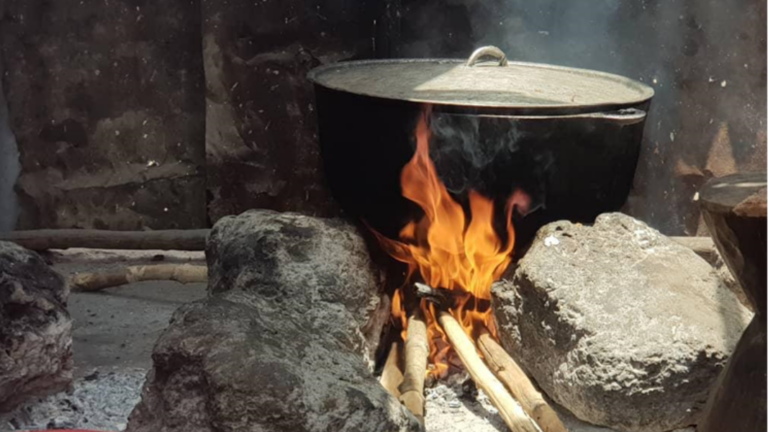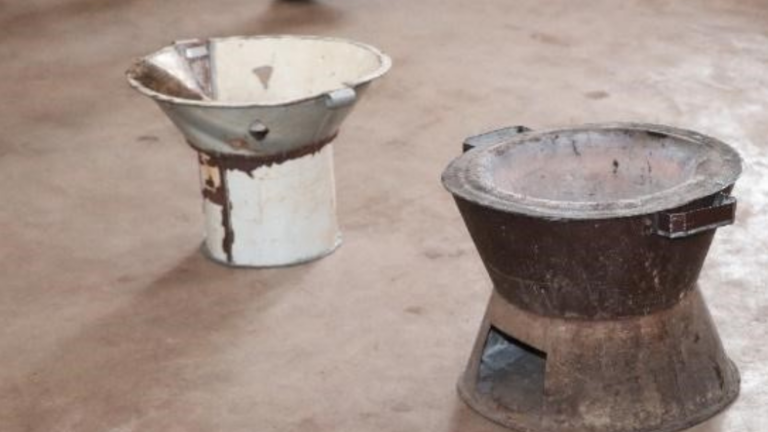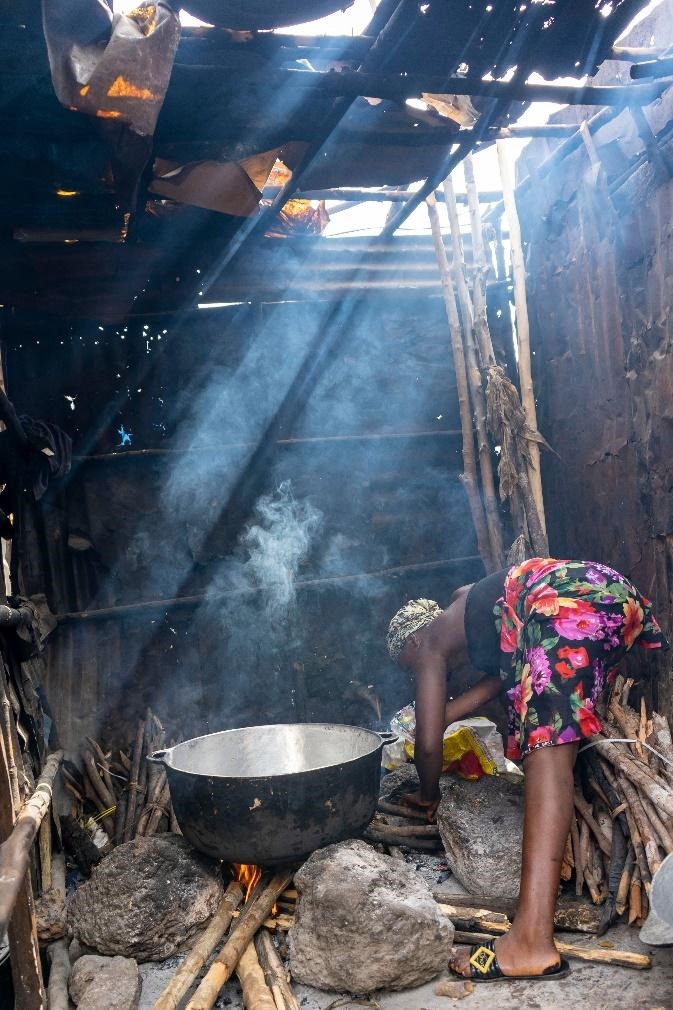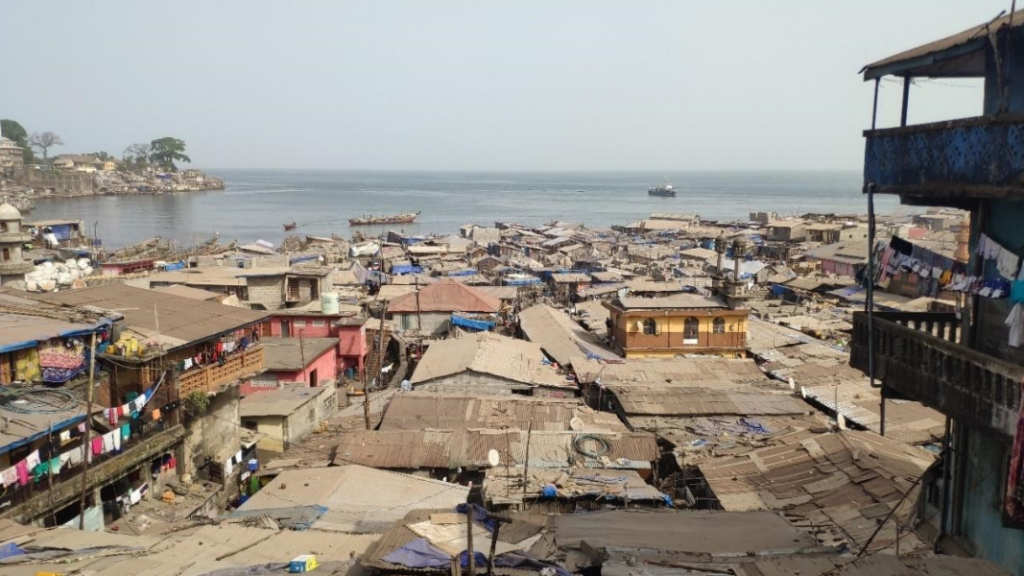26 July 2023
Clean cooking in African informal settlements
Assessing scalable solutions in Freetown



ICLEI Africa’s ENACT project identifies viable and scalable solutions to improve clean cooking access for slum dwellers
The Freetown City Council, through its #FreetownTheTreeTown campaign and #TransformFreetownAgenda, is making significant contributions to the Government of Sierra Leone’s target of increasing access to cleaner energy-saving technologies for all households by 2030. This is crucial, as Freetown, like many other sub-Saharan African cities, lacks access to clean cooking solutions and relies heavily on burning biomass for cooking. Air pollution from burning biomass indoors is a major health concern which has led to millions of people dying prematurely every year from illnesses caused by household air pollution.
African cities are often about 70% informal. Though cities offer access to opportunities and better services, urban informal settlements are often located in areas that are unsuitable for development, making it difficult to adequately plan and provide essential infrastructure and services such as potable water, waste management and adequate energy access for clean cooking.
Although bringing clean cooking solutions to informal settlements is vital, it has not received the necessary focus or investment, especially in relation to harnessing private sector intervention. Against this backdrop, the ENACT project is working in Freetown, Sierra Leone, to strengthen collaboration between the private sector, and national and subnational governments to improve access to clean cooking solutions in urban informal settlements.
The status of cooking in Susan’s Bay (Freetown)
Between January and June 2022, the Enabling African Cities for Transformative Energy Access (ENACT) project partnered with three prominent clean cooking companies to explore viable and scalable approaches for improving clean cooking access in Susan’s Bay, one of Freetown’s largest and poorest informal settlements, home to over 4 500 people who struggle to access essential services. The objective of this collaboration was to gather information on current cooking practices, clean cooking availability, usage and awareness within the community. The data from this collaboration served as a foundation for developing comprehensive and market-responsive plans.
The findings from the extensive assessments carried out by three clean cooking companies (Afrigas, ILEM Africa and PayGas), appointed by ICLEI Africa through the ENACT project, showed that charcoal remains the dominant cooking fuel in Susan’s Bay. More than 90% of households and over half of food-based enterprises in the community rely on charcoal as their primary cooking fuel, often supplemented by firewood. These fuels are paired with inefficient stoves such as the traditional three-stone for firewood (see Figure 1) and unlined metal stoves or unfired clay-lined stoves for charcoal (see Figure 2).


Households, typically comprising of five people, consume approximately two kilograms of charcoal or up to 10 kilograms of firewood daily to cook two to three meals. This results in a significant financial burden on residents, where charcoal expenses could account for up to 20.5% of their monthly income, for those earning the national minimum wage (800 Le ($40.65)), and a higher percentages for those earning less than the minimum wage. Prices tend to fluctuate based on the season and market availability, with charcoal and firewood becoming pricier and of lower quality during the rainy season. Food-based micro-enterprises face even higher expenditure on fuel, depending on their size and customer base.
When compared to a clean cooking alternative, the average household potential monthly expenditure on a fuel like Liquefied Petroleum Gas (LPG), can be estimated at between 20.42% and 32.5% of a minimum wage income (for a 6kg and 12kg refill respectively). Households are able to purchase charcoal and/or firewood daily and thus able to spread out the cost, compared to purchasing LPG which currently needs to be purchased monthly. This bulk payment causes households to perceive clean cooking options, like LPG, to be more expensive than biomass options.
An LPG cylinder costs more than the annual rent of a slum dweller in Freetown, so we need more affordable and sustainable clean cooking solutions that have a positive impact on these people’s livelihoods
Yvonne Aki-Sawyerr Mayor-elect of Freetown, in Sierra Leone
The local community benefits from a network of charcoal and wood retailers conveniently located throughout the area. On average, users can purchase their preferred fuel within a 15-minute walking distance or less from their residence or places of business. 70% of the firewood and charcoal retailers that were surveyed, indicated they have no alternate source of income. The accessibility and affordability of biomass fuels and the income generation for firewood and charcoal retailers is therefore a necessary consideration in the transition to clean cooking solutions.
The gender dynamics of cooking
There are also significant gender disparities associated with cooking in Susan’s Bay. Cooking responsibilities, along with the task of purchasing cooking fuels, lie primarily with women and girls. This gendered division of labour is also evident in food-based micro-enterprises, where many of the businesses are run by women. Cooking therefore plays a significant role in empowering women to generate an income.
The women’s role in the family also extends to accessing financial services required for the maintenance of the family’s day-to-day needs. Approximately two out of five households surveyed have an existing relationship with a microfinance institution or bank, and in a third of these cases, it was the woman in the household who maintained the relationship. Focus group discussions further revealed that local financiers perceive women as low-risk customers and trust them to repay loans within agreed timelines. Despite this trust, it remains a challenge for individual woman borrowers to access credit without a male guarantor.
Challenges with current cooking practices
Through ENACT’s baseline assessments conducted in Susan’s Bay, the following challenges related to biomass-based cooking were reported:
- Health and safety issues: headaches, coughs, eye irritation, burns, and sometimes, house fires. Discomfort caused by the excessive heat generated while cooking.
- Time-consuming processes: lighting the stove, cooking food and additional difficulty in starting the stove, when charcoal is soaked during rainy seasons. Constant cleaning required to remove soot generated during cooking.
- Environment: inability to cook indoors due to smoke and soot, resulting in exposure to rain, sun, other household waste and community contaminants while cooking. Heat and fuel wastage once cooking is completed, as stoves cannot be turned off immediately once the food is cooked.
- Cost: Reduced supply leading to higher cost of firewood is experienced by consumers during the rainy season.
In addition to these challenges, the community lacks access to clean cooking alternatives. According to the Sierra Leone 2015 Population and Housing Census, less than 1% of the nation’s population uses LPG, and only one in five people have access to electricity nationwide.
Residents of Susan’s Bay demonstrated a strong interest in transitioning to clean cooking technologies.

What lies ahead for ENACT’s work in Freetown
In response to the vital need for effective clean cooking interventions in informal settlements, especially in Susan’s Bay (Freetown), over the next few months, the ENACT team will:
- provide clean cooking (products) access to up to 1 500 households and businesses,
- create at least 10 sustainable jobs,
- abate greenhouse gas emissions, and
- minimise deforestation.
These interventions will showcase the economic and societal feasibility of market-led approaches to improving access to clean cooking in urban informal settlements, that can be scaled across Africa, via ICLEI Africa and partner networks.
Recommendations that the ENACT team will be taking forward:
- Establishing strategic partnerships with key stakeholders central to the success of clean cooking roll-out, including government, communities, the private sector and local financial institutions that already offer financial services to the target demographic.
- Diversifying the range of clean cooking products and services to provide customers with a variety of options. This may include LPG, improved biomass stoves, and briquettes, to replace charcoal.
- Pricing clean cooking fuels in a way that aligns with the purchasing habits of end-users. For instance, allowing daily small-scale fuel purchases, or enabling regular savings for monthly bulk purchase.
- Setting up local supply points at walking distances from where customers reside or operate their food-based businesses. This could involve partnering with local retail shops or existing charcoal/wood vendors to distribute clean cooking products. Engaging with charcoal and wood sellers also helps to safeguard their livelihoods, as non-biomass solutions may be perceived as direct competition.
- Introducing credit products that improve the affordability of clean cooking stoves and other cooking accessories, which are often pricier in the short-term than traditional biomass stoves.
- Providing clean cooking solutions that meet the customers’ specific cooking needs, such as stoves capable of cooking several dishes at once, and stoves that can accommodate large cooking pots for larger families and food businesses.
- Conducting concerted education and awareness-raising campaigns highlighting the benefits of clean cooking for households and businesses.
- Providing user training to ensure the safe and proper use of clean cook stoves.
- Prioritising the inclusion of women in these initiatives, involving them directly in the supply chain.
- Integrating wood and charcoal sellers into the last mile distribution of clean cooking products, by: (a) improving the infrastructure of wood and charcoal sellers to safely store and handle assets such as LPG cylinders and stoves, (b) offering training in stove repair and maintenance, (c) providing comprehensive instructions on safety protocols, and (d) enhancing the business skills of owners.

For more information about the ENACT project, please visit the project page, or reach out to the managers:
Ms Carine Buma
Project manager & Senior Specialist,
Climate Change: Energy & Resilience,
ICLEI Africa
carine.buma@iclei.org
Ms Mercy Rose
Program Lead
Mercy Corps Energy 4 Impact
mrose@mercycorps.org
The Enabling African Cities for Transformative Energy Access (ENACT) Project, funded by the Foreign Commonwealth and Development Office (FCDO) of the UK government, is part of the Transforming Energy Access (TEA) programme which is managed by the Carbon Trust. The project is being implemented by ICLEI Africa with support from Energy 4 Impact – Mercy Corps. The feasibility studies referenced in this article were conducted by PayGas, AfriGas and ILEM Africa.

